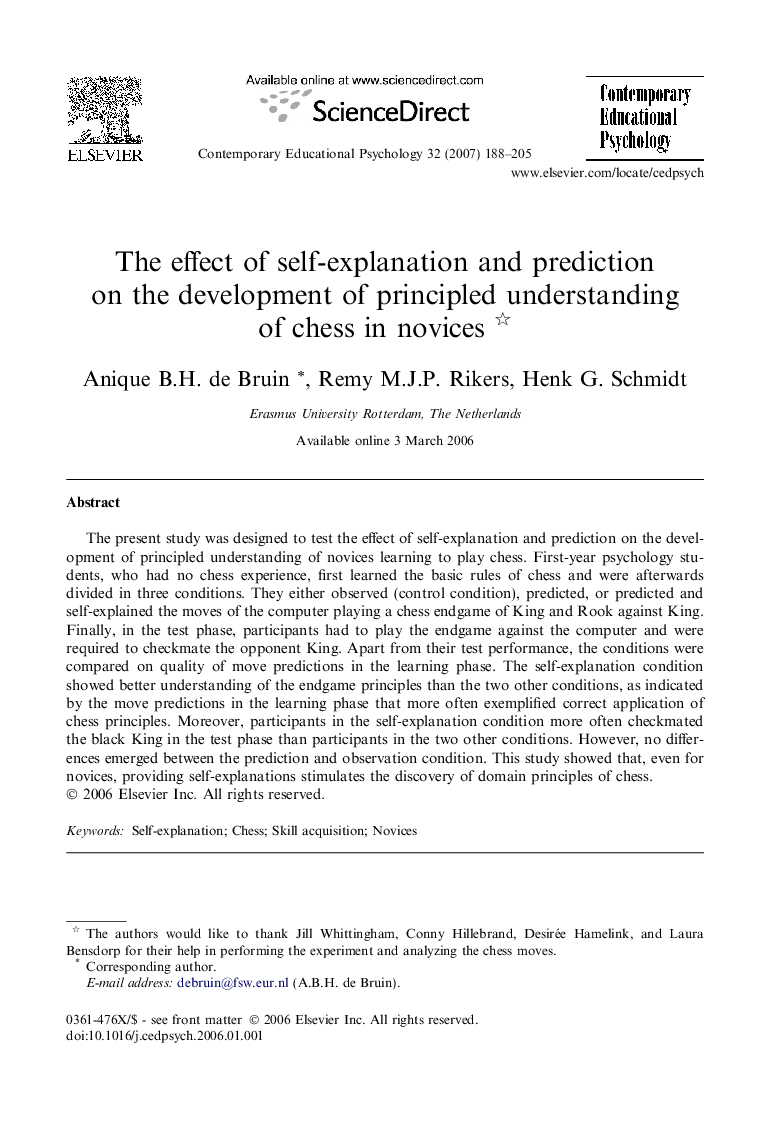| کد مقاله | کد نشریه | سال انتشار | مقاله انگلیسی | نسخه تمام متن |
|---|---|---|---|---|
| 352909 | 618635 | 2007 | 18 صفحه PDF | دانلود رایگان |

The present study was designed to test the effect of self-explanation and prediction on the development of principled understanding of novices learning to play chess. First-year psychology students, who had no chess experience, first learned the basic rules of chess and were afterwards divided in three conditions. They either observed (control condition), predicted, or predicted and self-explained the moves of the computer playing a chess endgame of King and Rook against King. Finally, in the test phase, participants had to play the endgame against the computer and were required to checkmate the opponent King. Apart from their test performance, the conditions were compared on quality of move predictions in the learning phase. The self-explanation condition showed better understanding of the endgame principles than the two other conditions, as indicated by the move predictions in the learning phase that more often exemplified correct application of chess principles. Moreover, participants in the self-explanation condition more often checkmated the black King in the test phase than participants in the two other conditions. However, no differences emerged between the prediction and observation condition. This study showed that, even for novices, providing self-explanations stimulates the discovery of domain principles of chess.
Journal: Contemporary Educational Psychology - Volume 32, Issue 2, April 2007, Pages 188–205